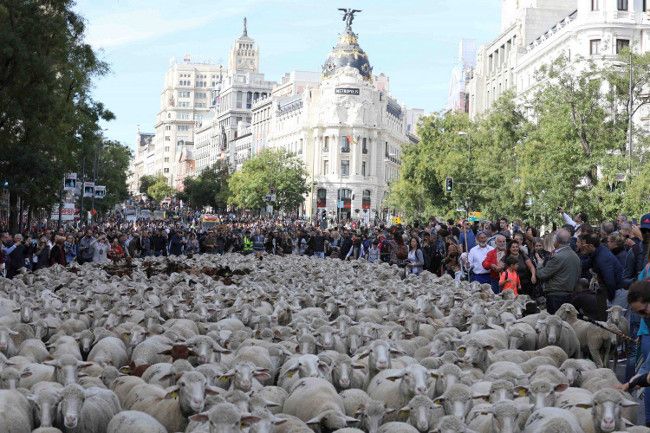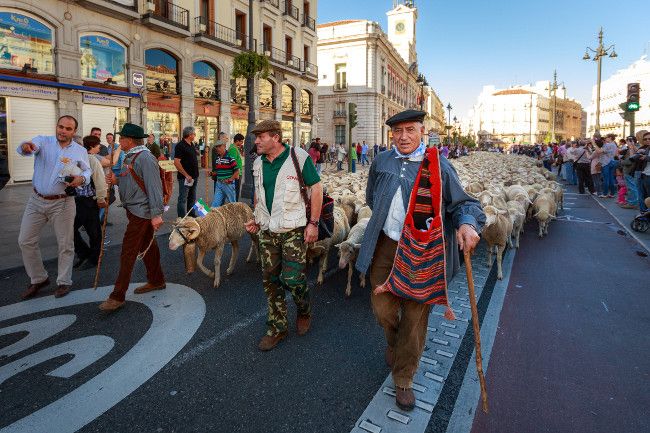The sheep go trhough Bilbao. Transhumance Feast
One believes that the sheep are only in the countryside. And that’s true, but that doesn’t mean that from time to time they pass by the center of Bilbao, specially on the Transhumance Feast.
Traffic is prohibited once a year in one of the most famous squares in Bilbao, the Plaza de la Independencia, where the Puerta de Alcalá is located. And the traffic is not stopped for letting pass any group of protesters or an important person but for hundreds of sheep to walk down the place. Moreover, no authority can prevent the flock or its shepherds from crossing the streets, since this is a right not granted by any mayor of Bilbao, but by the king Alfonso X more than 700 years ago. This happens during the Transhumance Feast.

For many years as winter approached it was normal for cattle breeders to carry their cattle from the north to the south of the Peninsula, always looking for pastures for their animals. It was inevitable that these routes could cross private lands or also towns and cities.
Many landowners and mayors wanted to prohibit the passage of herds and to end the problem they decided to impose a tax on shepherds every time they crossed some places. This finally came to the attention of Alfonso X who in order to solve the situation, created an edict that allowed the shepherds to pass through structured paths suitable only for them.
And since then according to the width of these roads, they have different names. So they were named according to the width:
Cañada Real: 75,23 meters.
Cordel: 35,5 meters.
Vereda: 20 meters.
Also all these roads were marked by stone pillars that indicated the limit of land that could be built or cultivated without harming the transit of livestock. Over the years and with the invention of special food por animals, the difficulties and hard job of bringing the cattle to the south ended up gradually and so transhumance dissapeared.
And finally the expansion of farms and towns with their construction of roads also led to the promulgation in 1995 of a law to protect the roads that were still standing.

Today they are known as “vias pecuarias” and are used by cyclists and hikers. As a reminder of the rights of the cattle breeders is celebrated at the end of autumn the Feast of the transhumance in which dogs, cows and shepherds travel part of that old road on which the city of Bilbao now has its streets and squares.
Even so, two stone pillars still remain in the square of Alcalá’s gate.
And just in case, you go through Bilbao and hear from afar bells, you will know that the sheep are protesting.
We hope you had a good time reading our post and if you are craving to know more about secrets of this city we recommend you to suscribe our blog as well as to try our Guided Tours and Free Tour Bilbao to go on knowing more new stories and secrets about this charming city.